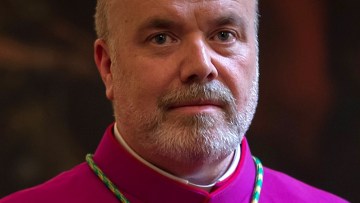Statement on inaccurate Sutton Trust 'Selective Comprehensives' research
Paul Barber, Catholic Education Service Director, said: “Catholic schools take in 50% more pupils from the most deprived backgrounds than the state sector.
“Just under a fifth of all pupils in Catholic statutory education meet the highest Income Deprivation Affecting Children Index (IDACI) criteria, compared to a 12.8% England average. Similarly, fewer pupils from the more affluent areas attend Catholic schools.
“Catholic schools have ten times the catchment area of other schools, and so are less reflective of their immediate locality.
“Free school meals are available for parents on benefits, but continue after household income rises above eligibility criteria. The number of Catholic school pupils on free school meals is marginally lower than the national average as many parents are ineligible due to immigration status or low-paid employment, with barriers to take-up including the complexity of applications and financial privacy concerns.”
Gender questioning children guidance for schools: CES statement
The government has today (19 December) launched a consultation on Gender questioning children: draft schools and colleges guidance.
Paul Barber, Catholic Education Service Director, said: “While some clarity from the government is welcome, Catholic schools have been responding to pupils over this issue for many years, on a case-by-case basis, with sensitivity and understanding that each individual’s needs vary. Catholic education focuses on the God-given dignity of each individual, regardless of what gender they are. We will be participating in the consultation in due course.”
Bishop Marcus' Advent message to Catholic schools
 Dear Brothers and Sisters in Christ,
Dear Brothers and Sisters in Christ,
In this liturgical season of Advent, we encounter refrains of preparation and expectation. These are experienced in the daily and Sunday readings; they culminate at Christmas in celebration of the birth of Our Lord and Saviour Jesus Christ, and the renewal of the calendar year with the Solemnity of Mary the Holy Mother of God.
Soon the school term will also give way to the holiday period. To school leaders, teachers, learning assistants, chaplains all those employed in our diocesan schools and colleges, I offer my thanks for their dedicated work and for their vocation within Catholic education.
Every year yields new challenges and those who exercise governance give so generously of their time, experience, and expertise. I wish to express my thanks therefore also to school and university governors and to trust boards, for their stewardship of the Church’s school, college and university communities and their important role in Catholic education.
Of course, parents are the first teachers of their children. The school environment in which children are taught and can flourish is founded upon all that they learn first in the family home. The parental love and encouragement which children receive in their home is reflected in the continued success of Catholic education at all levels, and for this grace we give thanks to the Lord.
May Almighty God bless you, your families and loved ones through these joyous days of Advent and Christmas and keep you safe throughout the Year of Our Lord 2024.
With the assurance of my prayers for you all, I remain,
Your servant in our Lord Jesus Christ.
Rt Rev Marcus Stock
Chair of the Catholic Education Service
Bishop of Leeds
Trustees needed for Centre for Chaplaincy in Education
 Are you committed to supporting and developing chaplaincy in education and called to give your time, experience and skill to the role of a trustee?
Are you committed to supporting and developing chaplaincy in education and called to give your time, experience and skill to the role of a trustee?
The Centre For Chaplaincy In Education is seeking new trustees.
You might be a serving or retired chaplain or church or school leader, or you may be approaching this from another perspective.
Whatever your background and interest, the CCE would be pleased to hear from you.
As well as a general trustee roles, we are also looking for someone who can take on responsibility for finance.
For an informal conversation please contact Mike Haslam, Chair of Trustees, at This email address is being protected from spambots. You need JavaScript enabled to view it.

